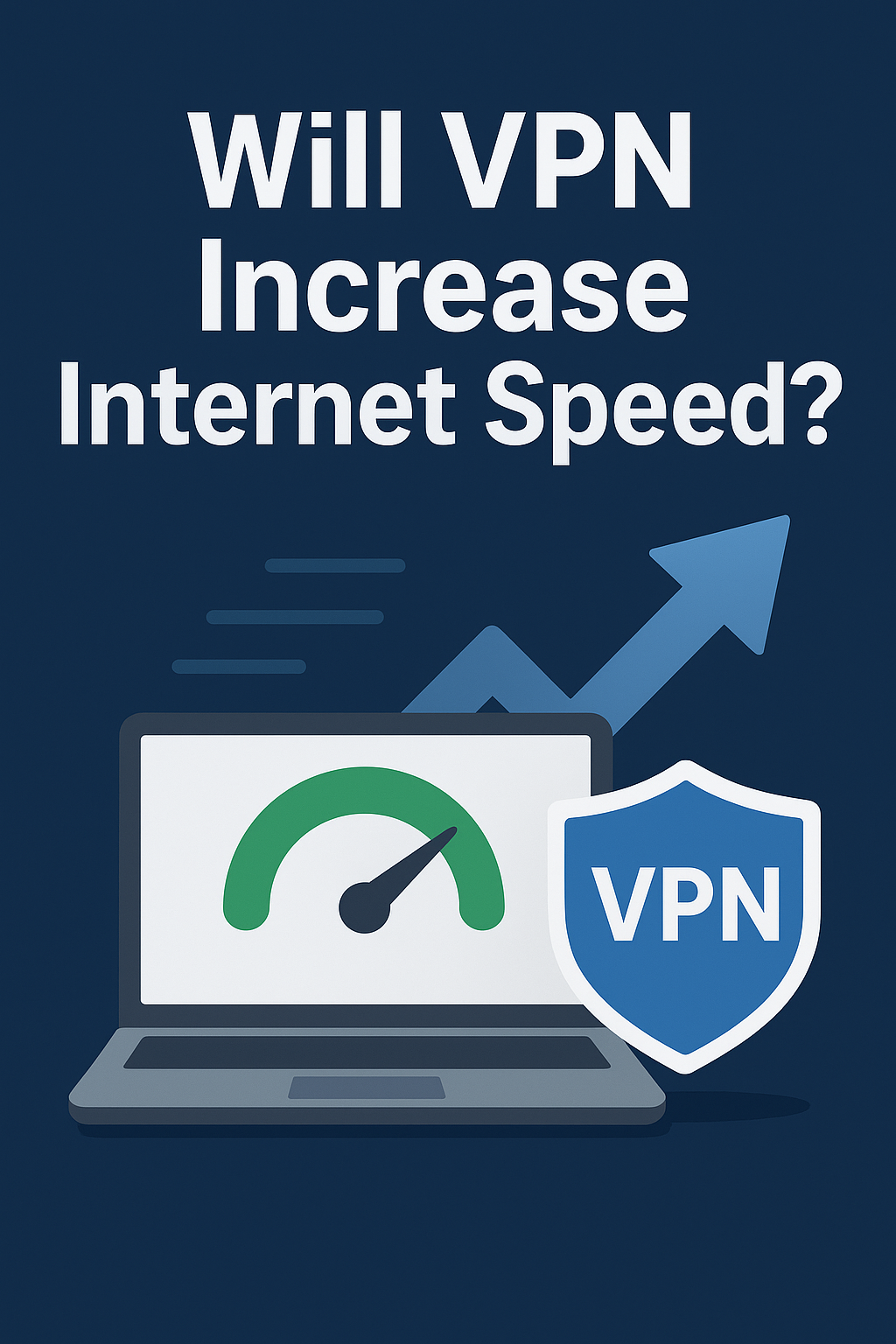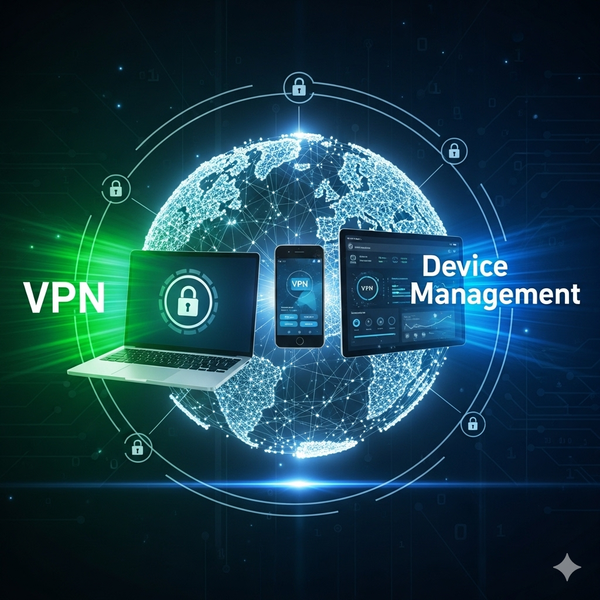Will VPN Increase Internet Speed? Exploring Facts, Myths, and Ways to Boost Your Connection

1. Introduction: Understanding VPNs and Internet Speed
In today’s digital age, internet speed has become a critical part of our daily lives. From streaming movies and online gaming to working remotely, a slow connection can be incredibly frustrating. Many users wonder: will vpn increase internet speed? This question has sparked a lot of debate, as the answer is not always straightforward.
A VPN, or Virtual Private Network, is a tool designed primarily to protect your online privacy and secure your data from hackers, ISPs, and other potential threats. When you connect to a VPN, your internet traffic is encrypted and routed through a server in a location of your choice. This can help you access blocked websites, protect sensitive information, and even avoid throttling from your internet service provider.
However, there is a common misconception that a VPN automatically slows down your connection. While it is true that encryption can add a small delay, there are situations where using a VPN can actually optimize your connection and, in some cases, increase internet speed. Factors such as routing efficiency, server location, and ISP restrictions all play a role in this.
For those looking to explore the potential benefits of VPNs, VPN Winston offers a convenient option. With 3 days of free access, support for up to 5 devices on one subscription, and the ability to access blocked websites while protecting your data, it provides a practical solution for anyone curious about whether a VPN can improve their internet experience.
In this article, we will explore the myths and realities behind the question: will vpn increase internet speed. By understanding how VPNs work and how they interact with your internet connection, you can make informed decisions about when and how to use a VPN to enhance both security and performance.
2. How VPNs Work: The Basics
To understand whether will vpn increase internet speed, it’s important to know how a VPN operates behind the scenes. A Virtual Private Network acts as a secure tunnel between your device and the internet. When you send or receive data online, it first passes through the VPN server, which encrypts the information to prevent unauthorized access. This process keeps your data safe from hackers, your internet service provider, and even public Wi-Fi vulnerabilities.
The way VPNs handle your internet traffic can sometimes affect speed. For instance, if your ISP slows down your connection for certain activities like streaming or gaming, a VPN can bypass these restrictions, potentially improving your effective internet speed. In other words, while encryption adds a small overhead, bypassing throttling can lead to faster experiences in specific cases.
Server location and quality are also crucial. A VPN connected to a nearby server with high bandwidth and low congestion can deliver excellent speeds, whereas distant or overloaded servers may reduce performance. This is why choosing a reliable VPN service is key. VPN Winston is optimized to provide fast connections across multiple servers, supporting up to 5 devices on a single subscription and offering access to blocked websites. Their service balances security with speed, making it a solid choice for users curious about whether a VPN can increase their internet performance.
In summary, understanding the technical foundations of VPNs helps answer the question: will vpn increase internet speed. While not a magic solution for all cases, a well-configured VPN can sometimes counteract ISP limitations and optimize routing paths, improving your overall internet experience.
3. Will VPN Increase Internet Speed? Myths vs Reality
The question will vpn increase internet speed often comes with a lot of misconceptions. Many people assume that adding a VPN will automatically slow down their connection due to encryption and extra routing. While it’s true that some VPNs can introduce minor latency, there are situations where a VPN can actually improve internet performance.
Common Myths
- VPNs Always Slow You Down
It’s a widespread belief that VPNs inherently reduce speed. While encryption adds a tiny delay, this slowdown is often negligible with high-quality VPNs. Moreover, some ISPs intentionally throttle certain types of traffic, such as streaming or torrenting. In these cases, using a VPN can bypass restrictions and result in faster effective speeds. - Faster Internet Is Guaranteed
Not every VPN will increase your internet speed. Server choice, network congestion, and distance all play crucial roles. Connecting to a faraway or overloaded server may actually slow down your connection.
When VPNs Can Increase Speed
- Bypassing ISP Throttling
If your ISP limits bandwidth for specific activities, a VPN can hide the type of traffic you are generating, preventing throttling and potentially improving speeds for streaming, gaming, or downloading. - Optimized Routing
Some VPNs use advanced server networks to route traffic more efficiently than your ISP’s default paths. This can reduce latency and increase download speeds in certain regions. - Accessing Better Servers
Connecting to a high-performance VPN server in a nearby location may offer better routing than your ISP’s congested networks, leading to smoother browsing and faster downloads.
For users seeking a reliable VPN that combines speed and security, VPN Winston is an excellent choice. With 3 days of free access and the ability to connect up to 5 devices on a single subscription, it helps users explore the potential benefits of VPNs, including accessing blocked websites while maintaining strong protection for personal data.
Understanding the difference between myths and reality allows users to make informed decisions about whether a VPN can improve their internet experience. While not every situation guarantees faster speeds, strategic use of a VPN can indeed optimize your connection in ways many people don’t realize.
4. Factors Affecting VPN Performance
When considering whether will vpn increase internet speed, it’s important to understand the key factors that determine VPN performance. Not all VPNs are created equal, and several elements can influence how fast and stable your connection is.
1. Server Location
The distance between your device and the VPN server plays a critical role in speed. Connecting to a nearby server usually results in lower latency and faster download speeds. Conversely, servers located far away can slow down your connection due to longer routing paths. Choosing a VPN with multiple server options, like VPN Winston, ensures you can always find an optimal server close to your location.
2. Server Load and Bandwidth
Even if a server is geographically close, high traffic can cause congestion and reduce speed. Premium VPN providers monitor server load and distribute users efficiently. VPNs like Winston offer a network optimized for performance, helping maintain fast connections even during peak hours.
3. Type of Encryption
VPNs encrypt your data to protect privacy, but stronger encryption protocols can slightly reduce speed. Modern VPNs balance security and speed, offering protocols that are both safe and efficient. With VPN Winston, users can enjoy robust encryption without noticeable slowdowns.
4. Device and Network Quality
Your device’s hardware and the quality of your internet connection also impact VPN speed. Older devices or unstable Wi-Fi connections can bottleneck performance, regardless of VPN quality. Connecting up to 5 devices simultaneously is possible with VPN Winston, allowing seamless protection across all your gadgets.
5. ISP Restrictions
Some internet service providers limit certain types of traffic. A VPN can help bypass these restrictions, potentially improving effective speed. This is one of the scenarios where a VPN may answer “yes” to the question will vpn increase internet speed.
Understanding these factors allows users to make smarter choices when using a VPN. By selecting the right server, protocol, and VPN provider, you can optimize both speed and security.
5. Tips to Maximize Your Internet Speed with VPN
Even though some people wonder will vpn increase internet speed, the reality is that with the right setup, a VPN can offer both security and smooth performance. Here are some practical tips to get the most out of your VPN connection:
1. Choose the Right Server
Selecting a server close to your location usually results in faster speeds. Many VPNs offer optimized servers for streaming, gaming, or browsing. With VPN Winston, you can easily switch between multiple servers to find the fastest connection, while also accessing blocked websites.
2. Use the Optimal Protocol
Modern VPNs offer various protocols that balance speed and security. Lightweight protocols, such as WireGuard, tend to provide faster connections without sacrificing privacy. VPN Winston supports high-speed protocols, ensuring your data is protected without slowing you down.
3. Avoid Overloaded Servers
During peak hours, some VPN servers may become congested. Switching to a less busy server can significantly improve your internet speed. VPN Winston’s network efficiently manages server load, allowing users to maintain fast and stable connections.
4. Optimize Device Settings
Ensure your devices are updated and free of background processes that consume bandwidth. Faster devices handle encrypted traffic better, resulting in smoother performance across all activities. With VPN Winston, you can protect up to 5 devices on one subscription, keeping all your gadgets secure and speedy.
5. Take Advantage of Free Trials
Testing a VPN before committing can help identify the best configuration for your needs. VPN Winston offers 3 days of free access, giving you the opportunity to experience how a VPN can potentially enhance your internet speed without any risk.
By following these tips, you can optimize your VPN connection and make the most of its capabilities. Strategic server choice, protocol selection, and proper device management can all contribute to answering the question: will vpn increase internet speed with a positive result.
6. When Using a VPN Can Actually Slow Down Your Connection
While many users ask will vpn increase internet speed, it’s important to acknowledge that under certain conditions, a VPN can reduce your connection speed. Understanding these scenarios helps you make informed choices and avoid unnecessary slowdowns.
1. Long Distance to VPN Server
Connecting to a server that is geographically far from your location increases latency. The longer the data has to travel, the slower your connection may become. Always select a nearby server to minimize delay. Services like VPN Winston provide multiple server options, allowing you to find the closest and fastest connection.
2. High Server Load
Even high-quality VPNs can experience temporary congestion. Overloaded servers struggle to maintain optimal speeds, affecting download and streaming performance. Switching to a less busy server or using a premium provider like VPN Winston can alleviate this issue.
3. Strong Encryption Protocols
Some encryption methods, while highly secure, require more processing power and can slightly slow down your connection. Choosing modern, efficient protocols balances speed with security. VPN Winston ensures robust encryption without significant speed loss.
4. Device Limitations
Older devices or those with limited processing capacity may not handle encrypted traffic efficiently, leading to slower connections. VPNs that allow multiple devices, like VPN Winston, can be used on newer, more powerful devices to maintain smooth performance across your network.
5. Slow Internet Base Speed
A VPN cannot increase the base speed provided by your ISP. If your connection is inherently slow, the VPN may add minimal overhead. However, in cases of ISP throttling, the VPN can actually improve effective speed.
By understanding these factors, users can avoid situations where a VPN unnecessarily slows down their connection. Selecting a reliable VPN, optimizing server choice, and using efficient protocols ensures that your VPN experience is fast, secure, and stable.
7. Conclusion: Balancing Security and Speed
The question will vpn increase internet speed does not have a simple yes or no answer. While VPNs are primarily designed to protect your privacy and secure your online data, they can also impact your internet speed in both positive and negative ways. Understanding how VPNs work, the factors that affect performance, and the strategies to optimize your connection is key to making the most of your online experience.
A well-chosen VPN can bypass ISP throttling, provide optimized routing, and allow access to restricted content — all while keeping your personal data secure. Conversely, selecting the wrong server, using outdated devices, or relying on inefficient protocols can slow down your connection.
For users looking for a reliable and high-performance VPN, VPN Winston offers an ideal solution. With 3 days of free access, support for up to 5 devices on one subscription, and the ability to access blocked websites safely, it combines speed, convenience, and robust security. Whether your goal is faster streaming, uninterrupted gaming, or safe browsing, VPN Winston helps you enjoy the best of both worlds: security and speed.
In conclusion, while not every VPN will automatically increase internet speed, a thoughtful approach — choosing the right server, protocol, and provider — can significantly improve your internet experience. By balancing security with performance, you can enjoy a fast, reliable, and protected connection anytime, anywhere.


